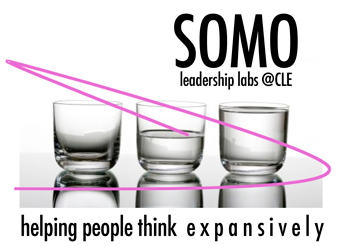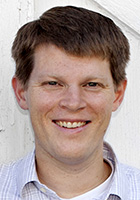somo leadership labs aims to bring positive psychology to cleveland

Louis Alloro isn't the first non-native to touch down in Northeast Ohio and notice that Cleveland could use a collective mood lift, but he is pioneering a new effort to bring the science of happiness to Northeast Ohio.
The New York City native, who holds a Master's degree in Applied Positive Psychology from the University of Pennsylvania (he is one of the first 100 people in the world to hold this degree), discovered Cleveland's mild mood disorder when he visited his best friend here a few years ago. As soon as he set foot in the city, he had "a visceral sense that positive psychology would work really well here," he says.
After attending the Sustainable Cleveland conference in 2009, Alloro formed key partnerships with other Cleveland leaders interested in positive psychology. Soon afterwards, he relocated here and launched SOMO Cleveland, a project of SOMO Leadership Labs, which aims to "find and leverage the Social-Emotional (SOMO) Leaders around town, those who share a vision for a more positive future."
Recently, SoMo Cleveland hosted a screening of the documentary film "Happy." This film presents the argument that happiness stems not from one's material possessions, but from cultivating a sense of community, fostering experiences and personal connections, and giving back to other people. The film delves into the increasingly sophisticated science of happiness to show that income and material possessions account for only a modest amount of one's level of happiness.
The film also suggests that many Americans, who tend to privilege wealth above community building, relationship building and altruism as a means of creating happiness, are misguided. The science of happiness is directly applicable to Cleveland, Alloro says, because training people to seek happiness within themselves will lead to a stronger city focused on "positive self-growth."
Each month, SOMO Cleveland is hosting a series of free learning labs, book club discussions and film discussions, among other events, to engage Clevelanders.
"We want to give people experiences that help them build their own psychological muscle, then measure how they become more effective change agents," says Alloro. "We want to create an energy that promotes a viral sweep of well-being."
Source: Louis Alloro
Writer: Lee Chilcote

